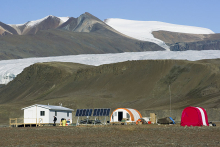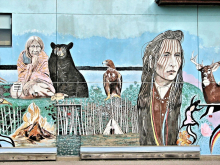Growing up in Minnesota, McGill PhD student Scott Sugden spent a lot of time outdoors, particularly canoeing and backpacking in the Arctic.
The Arctic became a landscape that he cared deeply about. It led to work in outdoor education, a high school biology classroom, and now as a researcher in environmental microbiology.










